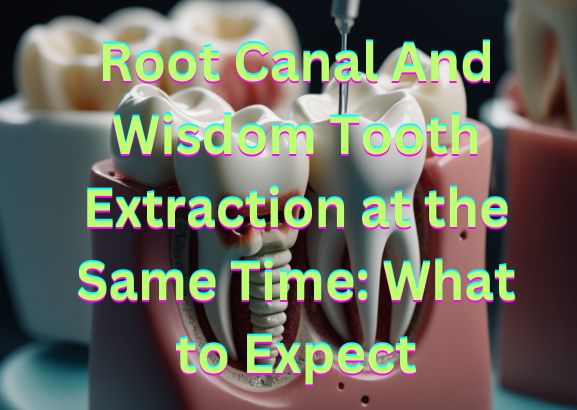Is It Rare to Have All 4 Wisdom Teeth? Discover the Truth!
Last Updated on 4 months by DR. ALBIN SIPES
It is rare to have all 4 wisdom teeth for most people. Having all 4 wisdom teeth is not common.
Many people have their wisdom teeth removed because they can cause various dental issues. Wisdom teeth, also known as third molars, typically emerge in late adolescence or early adulthood. These teeth were once necessary for our ancestors, who had a different diet and jaw structure.
However, due to evolution and changes in diet, our jaws have become smaller, often leaving insufficient space for these teeth to fully emerge. As a result, wisdom teeth can become impacted, leading to pain, infection, and other complications. While some individuals may have all 4 wisdom teeth, it is considered a rarity. Most people will have one or more of their wisdom teeth removed to prevent complications and maintain oral health.
Understanding Wisdom Teeth
Wisdom teeth, also known as third molars, are the last teeth to emerge in the mouth. These teeth typically appear between the ages of 17 and 25. They serve a purpose in our mouths, aiding in chewing and grinding food.
However, not everyone develops these teeth, and it’s considered rare to have all four wisdom teeth. For some individuals, their wisdom teeth may cause issues such as overcrowding, misalignment, or impaction. In such cases, extraction might be necessary to prevent further complications.
It’s essential to consult a dentist to evaluate the condition of your wisdom teeth and determine the best course of action.
How Many People Have All 4 Wisdom Teeth?
It is not rare for individuals to have all 4 wisdom teeth. The percentage of people with all 4 wisdom teeth varies. Factors such as genetics, jaw size, and dental development can affect the presence of all 4 wisdom teeth.
Across populations, there are variations in the number of wisdom teeth. Some individuals may have fewer wisdom teeth, while others may have more. Individual circumstances can also influence the presence or absence of wisdom teeth. Regular dental check-ups and discussions with a dentist can provide valuable insights into the reality of wisdom teeth and any potential issues associated with them.
Keeping an open line of communication with a dental professional is vital to maintaining good oral health.
When Is It Rare To Have All 4 Wisdom Teeth?
It is not uncommon to have all four wisdom teeth, but there are situations where individuals may be missing them. The presence of wisdom teeth can be impacted by genetics, as some people are born without them. Dental anomalies can also play a role, such as teeth not forming correctly or being trapped beneath the gums.
These factors can result in a lack of space for the wisdom teeth to come in. In some cases, early removal of the wisdom teeth may be recommended to prevent potential dental problems. However, it is essential to consult with a dentist to determine the best course of action based on individual circumstances.
Remember, wisdom teeth are not a necessity for everyone, and some people may never develop them.
The Myths And Misconceptions About Having All 4 Wisdom Teeth
Having all four wisdom teeth is more common than you might think. Many individuals have them. However, there are common misconceptions surrounding wisdom teeth. It is crucial to debunk these myths and understand the truth. Regular dental check-ups and consultations are crucial to monitor the health of your wisdom teeth.
The dentist can assess if there are any potential issues or complications. Wisdom teeth removal is often recommended to prevent problems such as overcrowding, pain, and misalignment. The procedure offers various benefits, including reduced risk of tooth decay and gum disease.
It is vital to prioritize oral health and seek professional advice to make informed decisions about your wisdom teeth.
Alternatives To Wisdom Teeth Removal
Having all four wisdom teeth is rare. But if you’re one of the lucky few who do, there are alternatives to traditional wisdom teeth removal. Options for managing wisdom teeth without extraction include monitoring and preventive measures for impacted teeth.
It’s essential to keep a close eye on these teeth and take necessary precautions. However, not removing wisdom teeth can come with potential risks and complications. So, it’s crucial to weigh the pros and cons of extraction versus the alternatives.
Wisdom teeth can cause discomfort and lead to oral health issues, so proper management is crucial. By staying informed and seeking professional advice, you can make an informed decision about what’s best for your situation.
Taking Care Of Your Wisdom Teeth
Having all four wisdom teeth is not rare, but taking care of them is crucial. Proper oral hygiene is essential for wisdom teeth to maintain their health. Brushing and flossing regularly can prevent issues. It’s essential to keep an eye out for signs of wisdom teeth problems, such as pain or swelling.
If you experience these symptoms, it’s best to seek professional advice. Ignoring wisdom teeth issues can lead to complications and further oral health problems. Regular dental check-ups are also necessary to monitor the condition of your wisdom teeth. By following these tips and being proactive in your oral care, you can ensure the health of your wisdom teeth and prevent any potential issues in the future.
Keep your smile bright and your oral health in check.
Frequently Asked Questions For Is It Rare To Have All 4 Wisdom Teeth
Are All 4 Wisdom Teeth Common?
All 4 wisdom teeth are common, but only some develop all 4. Some people may have none, while others may have only 1 or 2. It varies from person to person based on factors like genetics and jaw size.
Why Do Some People Have All 4 Wisdom Teeth?
Having all 4 wisdom teeth is influenced by our ancestors’ dietary habits. Early humans needed these extra molars to chew stricter food. Still, as our diets changed, evolutionary adaptation has caused some people to be born without any or with fewer wisdom teeth.
What Happens If I Have All 4 Wisdom Teeth?
If you have all 4 wisdom teeth and they come in aligned adequately without causing any pain or issues, you may not need to have them removed. However, many people experience problems like crowding, impaction, or infections that require removal to prevent discomfort and potential oral health issues.
Conclusion
The presence of all four wisdom teeth is more common than commonly believed. While some individuals may never develop all four of these teeth, a significant portion of the population does. The existence of all four wisdom teeth can vary depending on factors such as genetics and evolution.
However, having all four wisdom teeth does not necessarily indicate any dental complications or abnormalities. It is important to note that the eruption of wisdom teeth can cause discomfort and require extraction in some instances. Dentists often recommend removing wisdom teeth proactively to avoid potential issues such as overcrowding, misalignment, and infections.
Regular dental check-ups and X-rays can help identify any problems associated with the presence of wisdom teeth. Ultimately, each individual’s experience with wisdom teeth can differ, and it is essential to consult with a dental professional for personalized advice and guidance.
Understanding the factors that contribute to the presence of all four wisdom teeth can help individuals make informed decisions about their oral health.



